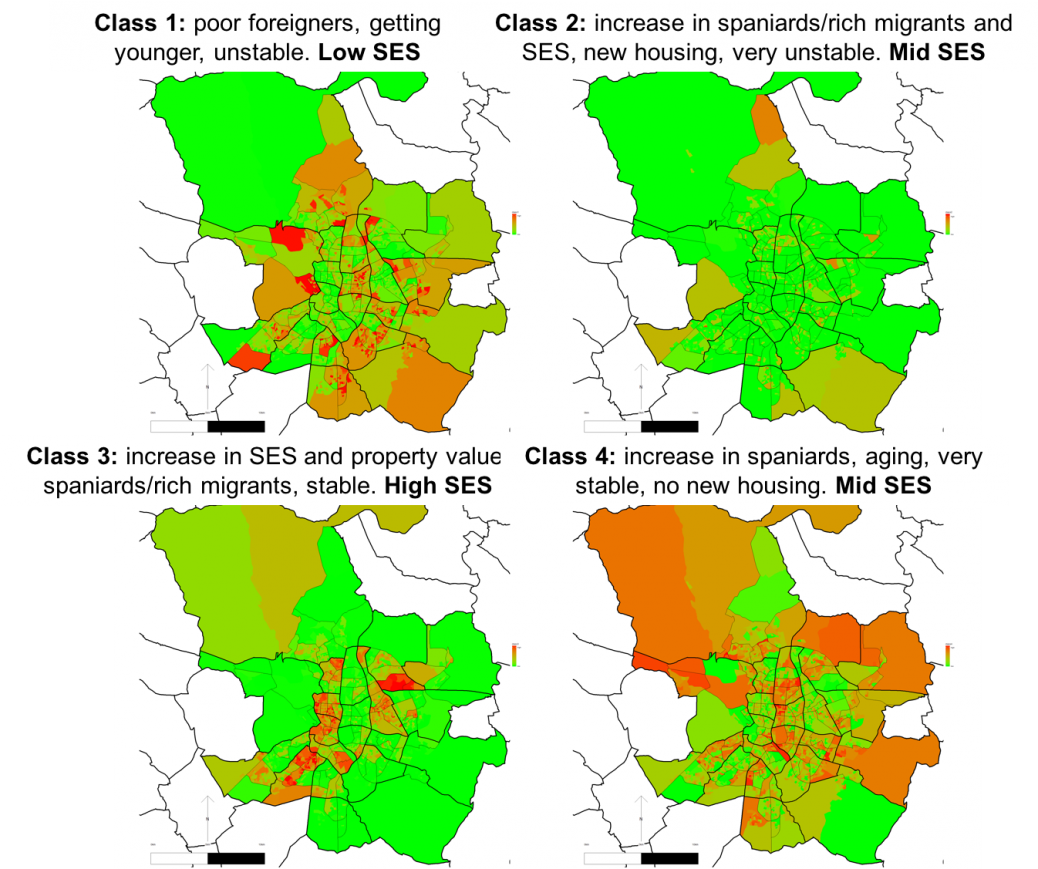HHH Retrospective Study
Quantitative data on urban environments and population health in the city of Madrid
The HHH Retrospective Study seeks to gather quantitative data on urban environments and population health in the city of Madrid. In particular, we have gathered data on the sociodemographic, political and economic environments of all census sections of the city of Madrid from 2005 through 2015. Moreover, we also have managed data coming from electronic health records from 850,000 people living in four districts of Madrid from 2009 to 2014.
The environment data come from the Padron (the continuous census of Spain that organizes administrative services), Commercial Spaces Census, Spanish Census, Social Security records, Unemployment Services, the Cadastre (universal tax registry of all properties), Elections records, Idealista (biggest real state corporation in Spain), and other data collected at the City Level (Statistics Section of the City Government) and Regional Level (Institute of Statistics of Madrid). Among the unique features of these data is the availability of information on residential mobility from any census section to any other census section of the city for 10 years.
The health data comes from the (former) Area 4 of the Primary Care Health System, that encompasses the districits of Ciudad Lineal, Hortaleza, San Blas-Canillejas and Barajas. For 5 years (2009-2014) we have data on diagnoses of diabetes, hypertension, dyslipidemia, cardiovascular diseases and other related conditions. We also have laboratory values for the years 2013-2014. This massive retrospective dataset with information on 850,000 people will allow us to conduct very interesting longitudinal analysis.

Neighborhood Change Classes in Madrid from 2006 to 2009, based on a Finite Mixture Model with 19 variables
Ancillary Study Information

PI: Usama Bilal, MD MPH
Research Team: Usama Bilal, Manuel Franco, Isabel del Cura, Luis Sanchez-Perruca
Funding: Usama Bilal has received two Johns Hopkins Center for a Livable Future-Lerner Fellowships for a total of $95,059.
Acknowledgements: part of the data collection of this project would not have been possible without the help of the Statistics Section of the City Government of Madrid (Antonio Bermejo, Remedios Perez).
Current Sub-projects under this ancillary study (and contact person)
Neighborhood Change, Food Environment Changes and Diabetes in Madrid (Usama Bilal. PhD Thesis)
Neighborhood Socioeconomic Status and Diabetes Burden using Electronic Health Records (Usama Bilal)
